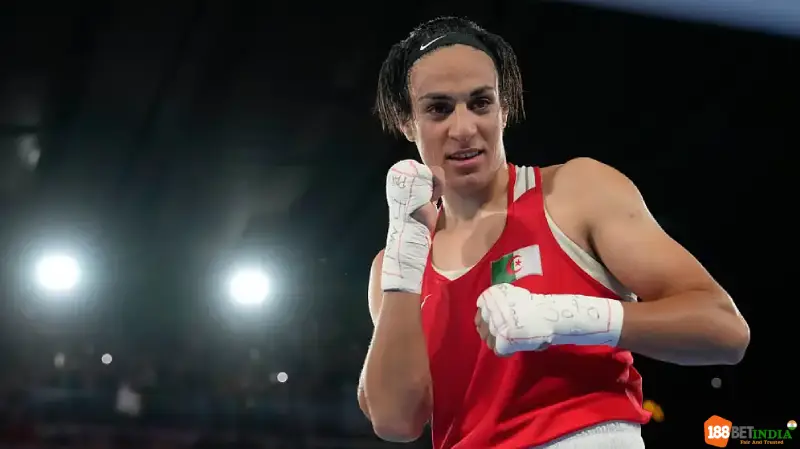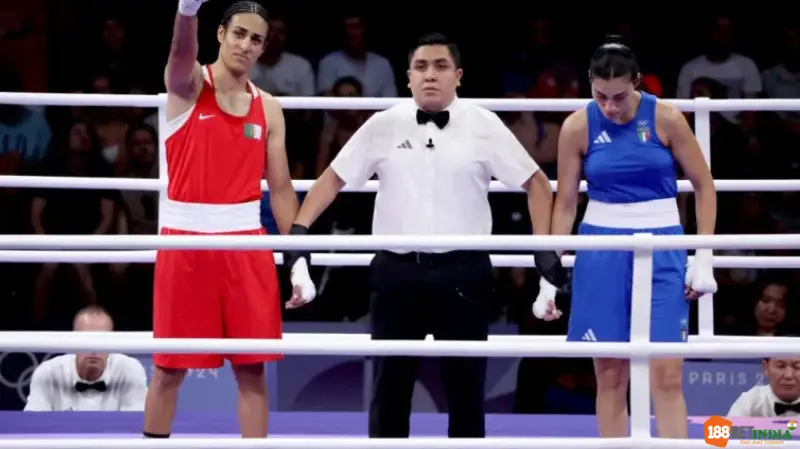Imane Khelif—the Algerian boxer who punched her way to Olympic gold at Paris 2024—is now facing a challenge she can’t train for: a mandatory genetic sex screening. Under new rules laid out by World Boxing, all female athletes over 18 must undergo PCR-based chromosome testing. And yes, Khelif’s name was singled out in the announcement—ouch.
But what’s really going on behind the gloves?

🧬 The DNA Dilemma: Why World Boxing Is Making Everyone Swab It Out
In a move that feels straight out of a sci-fi novel (minus the aliens), World Boxing introduced a new policy titled “Sex, Age and Weight.” The intent? Ensuring fairness in the ring and dodging controversies around sex eligibility. The test looks for Y chromosome markers—basically asking: what was your biological sex at birth?
And unlike random drug tests, this one’s for everyone, not just suspected athletes. According to the body, it’s about safety, fairness, and providing “a level playing field.” Whether it achieves that or opens Pandora’s punching bag is another matter.
🏅 Why Imane Khelif Is at the Center of It All
Imane Khelif isn’t new to scrutiny. Back in 2023, the previous boxing overlords—the IBA, which you may remember for its Russian-flavored controversies—disqualified Khelif and Taiwan’s Lin Yu-ting from the world championships over vague eligibility concerns. No official explanations, just a silent KO.
Yet at Paris 2024, under the IOC’s watchful (and more inclusive) eye, Khelif not only competed but dominated the women’s 66 kg final, taking gold against China’s Yang Liu.
And now, she’s aiming to defend that title in Los Angeles 2028—but can she even enter the ring?
🧨 Chromosomes, Controversy, and Competitive Chaos
Chromosome testing was largely abandoned in the ’90s. Why? Because biology is messy, folks. Differences in Sex Development (DSD), naturally high testosterone levels, and other factors make binary classification far from straightforward.
Sports bodies like World Athletics already sparked backlash when they brought back similar rules. Their recent guidelines exclude transgender women who went through male puberty and even affect cisgender women with elevated testosterone.
So it’s no surprise that World Boxing’s new rulebook feels like adding a heavy right hook to an already explosive debate.
💬 “I Am Not Transgender,” Says Khelif
In a rare public comment, Imane Khelif made her position clear: “I am not transgender.” Yet her identity is once again under a microscope—this time literally, through genetic testing.
Meanwhile, the Algerian Boxing Federation received a formal letter: Khelif can’t fight until she completes the test. Her inclusion in next month’s Eindhoven Box Cup? Suspended—pending results.
The stakes? Her path to Los Angeles 2028 might be blocked not by an opponent—but by her chromosomes.
🎰 The Odds According to 188BET: Khelif’s Comeback Chances
For bettors tracking Khelif’s turbulent career, 188BET has adjusted its futures odds:
- Odds she competes at LA 2028: 2.75
- Odds she wins another Olympic gold: 4.50
- Odds she gets permanently sidelined by policy: 3.20
Clearly, even the sportsbooks aren’t sure how this one will play out.
❓FAQs: Other People Also Asked
Under World Boxing’s new policy, all female athletes over 18 must verify their biological sex using genetic testing. Khelif was specifically mentioned due to prior eligibility controversy.
A PCR-based genetic test looking for Y chromosome markers. If flagged, further hormonal and anatomical evaluations may follow.
No. She has always competed in the women’s category and insists she is not transgender.
Yes. She was allowed to compete in both Tokyo and Paris Olympics under IOC standards, which did not require chromosome testing.
Yes. The World Boxing policy includes an appeals process involving independent specialists.
This rule affects all female boxers over 18 and could influence eligibility across international competitions leading up to the 2028 Olympics.

📌 Conclusion: A Fight Beyond the Ring
Imane Khelif’s story is no longer just about left hooks and uppercuts—it’s about policies, chromosomes, and what it means to be a woman in elite sports. While World Boxing insists it’s about fairness, many see it as a step back into outdated science and invasive control.
As Khelif prepares to fight not just opponents but systems, one thing’s for sure: the biggest battle in boxing today isn’t in the ring—it’s over identity.
💥 What’s your take? Drop your thoughts, share this story, and stay tuned as this saga unfolds.

iGaming Analyst & Gambling Compliance Reviewer
Raj Malhotra is an India-based iGaming analyst with over 12 years of experience in online casino content, player safety, and regulatory compliance. As the lead reviewer for Casino888Bets.com, Raj personally tests and audits each casino featured on our platform, ensuring honest insights for players.
His deep knowledge of the Indian gambling market, combined with technical SEO and real-time betting analysis, allows him to deliver trusted, user-focused recommendations. Raj advocates for responsible gambling and fair play across every review published under his name.
